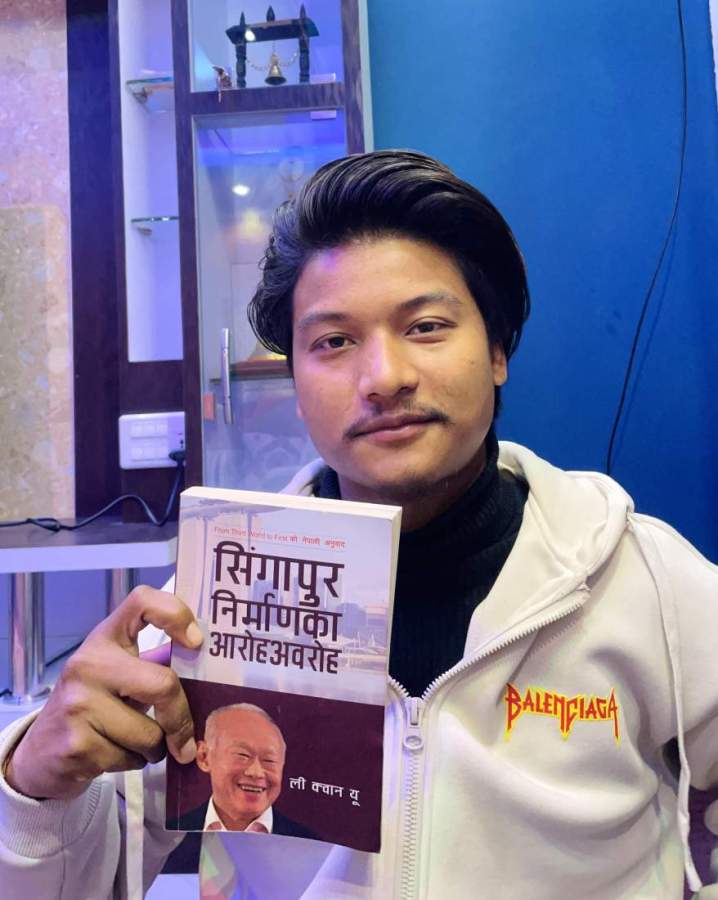

“From Third World to First” is a remarkable memoir by Lee Kuan Yew, often regarded as the founding father of modern Singapore. This book presents a comprehensive account of his leadership and the extraordinary transformation of Singapore from a small, impoverished island into a global financial powerhouse. It is difficult to fathom how a small nation with no natural resources achieved such monumental changes across diverse aspects of governance and society. Lee Kuan Yew truly turned a stone into gold.
In this memoir, Lee candidly addresses various challenges including the economic crises, political hurdles & the development era that shaped modern Singapore. One of the most compelling aspects of the book is his analytical and unvarnished writing style. He discusses numerous matters such as economic policies, infrastructural development & national strategies, allowing readers to grasp how a small island separated from Britain and Malaysia evolved into the modern nation of Singapore.
The core theme of the book revolves around Lee’s unwavering commitment to good governance. He understood the critical components required for national development and paid particular attention to grassroots issues. Emphasizing the importance of strong leadership, discipline, and sustainable planning, he advocated for meritocracy and anti-corruption measures that propelled Singapore to great heights. For Lee, education was paramount; he argued that only those with at least a university education should be eligible to serve as politicians, highlighting the role of education in guiding the nation in the right direction. To combat corruption, he increased the salaries of government officials and ensured strict penalties as well as punishments for those found guilty of corrupt practices.
Initially, Singapore faced significant economic challenges, but Lee delved into effective economic policies that spurred growth and expansion. He focused on industrialization by attracting foreign investments, creating strategies that enabled foreign investors to set up industries in Singapore. Over time, he cultivated a business-friendly environment that transformed Singapore into a global hub for trade.
The book also explores the theme of multiracialism. Lee Kuan Yew recognized the importance of uniting the diverse ethnic groups in Singapore, including the Chinese, Malays and Indians. He made English the national working language to foster harmony among these groups. Lee asserted that without the English language, multinational companies would have hesitated to invest in Singapore, and over 200 banks might not have established their presence there. By giving all ethnic groups a chance in elections, he demonstrated his commitment to inclusivity and strong leadership.
Additionally, Lee launched the “Singapore Green Plan,” a campaign aimed at maintaining a quality living environment while pursuing economic prosperity. His efforts ranged from combating littering to planting trees sourced from other regions and prohibiting toxic materials, all aimed at ensuring sustainable growth and development for the nation. Lee Kuan Yew also discusses Singapore’s foreign relations with countries such as Malaysia, Indonesia, Thailand,Philippines, England, USA, Japan, Israel & others. Despite various challenges, he succeeded in maintaining positive relationships through careful foreign policy management. Throughout this memoir, Lee emphasizes his dynamic role in shaping Singapore. Consequently, some may view him as a dictator or self-congratulatory but I believe that in some circumstances, a firm hand is necessary for nation-building.
The book is rich with insights and offers valuable lessons for anyone interested in governance, politics, and leadership. Which is why the book “From Third World to First” is a must-read for anyone, especially those seeking to know and understand the intricacies of political leadership. As a matter of fact, Lee Kuan Yew’s story presents invaluable lessons on governance, pragmatism and the trade-offs that leaders must navigate. Regardless of one’s differing opinion on his strategies, the outcomes of his leadership are undeniable and can be observed through Singapore’s remarkable progress. This memoir remains a vital resource for policymakers and leaders worldwide seeking to understand the essence of leadership, development and globalization.
Keshav Gharti Magar
Comment